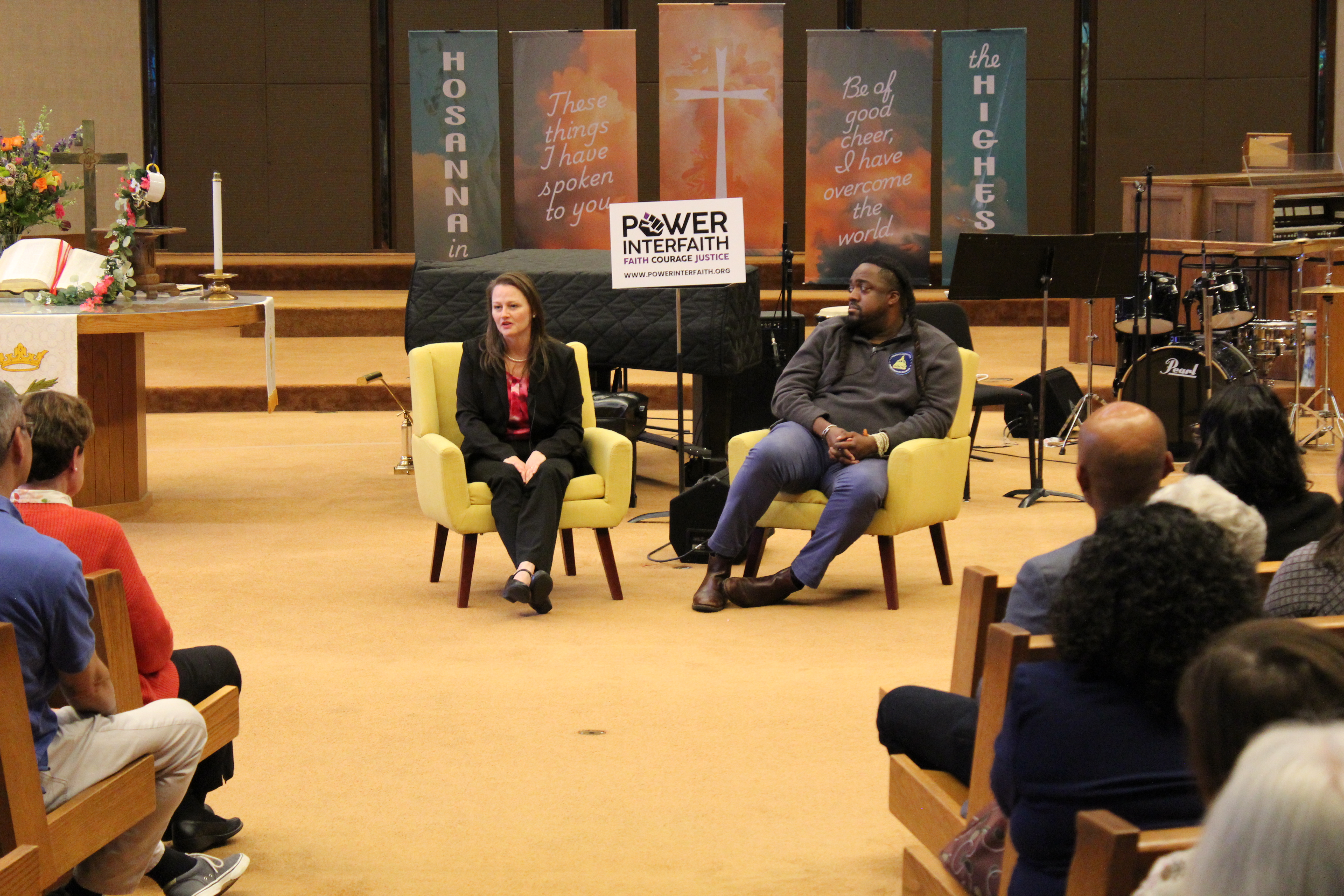“We must demand that PA honors the court’s ruling with action, not empty promises. We must demand that legislators stop kicking the can down the road, while 5-year-olds lose irreplaceable time to learn and grow.” Said Nelson Suarez, fourth grade teacher from Schaeffer Elementary in Manheim Township,
Over 200 faith leaders and community members gathered at Church of the Apostles Sunday afternoon to listen to testimonies from local parents and educators.
POWER Interfaith’s “Education Justice” Town Hall to demand equitable funding for Pennsylvania’s public schools united constituents and elected officials to discuss the need for fair investment in education ensuring that every child, regardless of zip code, has access to a high-quality education.
POWER Interfaith is a nonprofit and nonpartisan organization that uses faith and moral grounding to organize and empower Pennsylvanians to live and work together to transform the conditions of community.
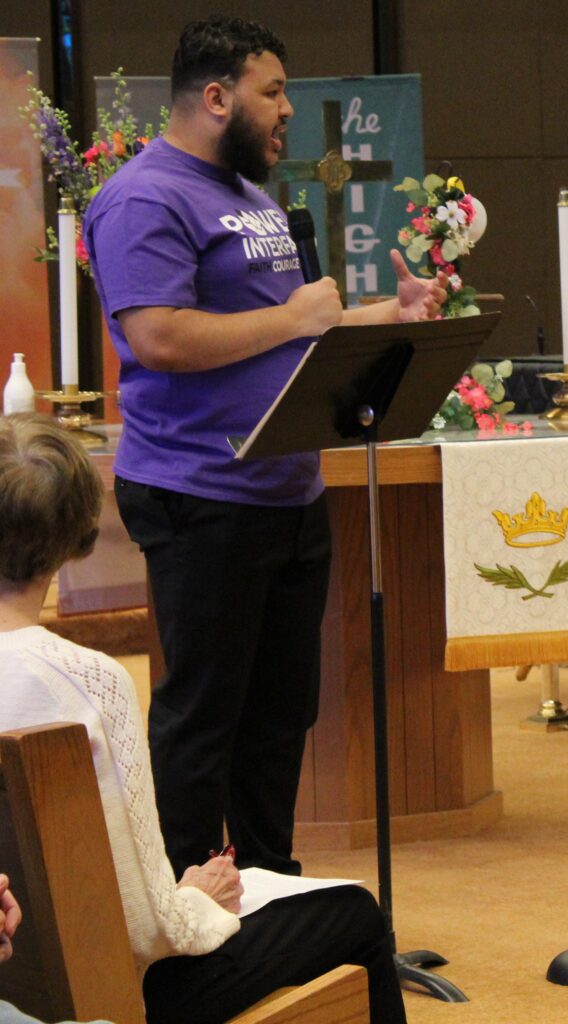
The event is part of the organization’s statewide effort to hold legislators accountable and advocate for policies that ensure all students, especially those in historically underfunded districts, receive the resources they need to thrive. The town hall was hosted by Isiah Perry, program director of Bright Side Opportunities Center.
Rep. Ismail Smith Wade-El, D-Lancaster and Rep. Nikki Rivera, D-Lancaster listened to statements from Lauren Worthington, a Hempfield parent; Dionne Golden, life skills teacher from Reynolds Middle School in School District of Lancaster (SDOL); Nelson Suarez; Jamie Showers, social worker from Lincoln Middle School in SDOL; Lauren VonStetten, Columbia school board member; Steven Heffner, math teacher, J.P. McCaskey High School in SDOL; Mekkai Williams, Hempfield teacher.
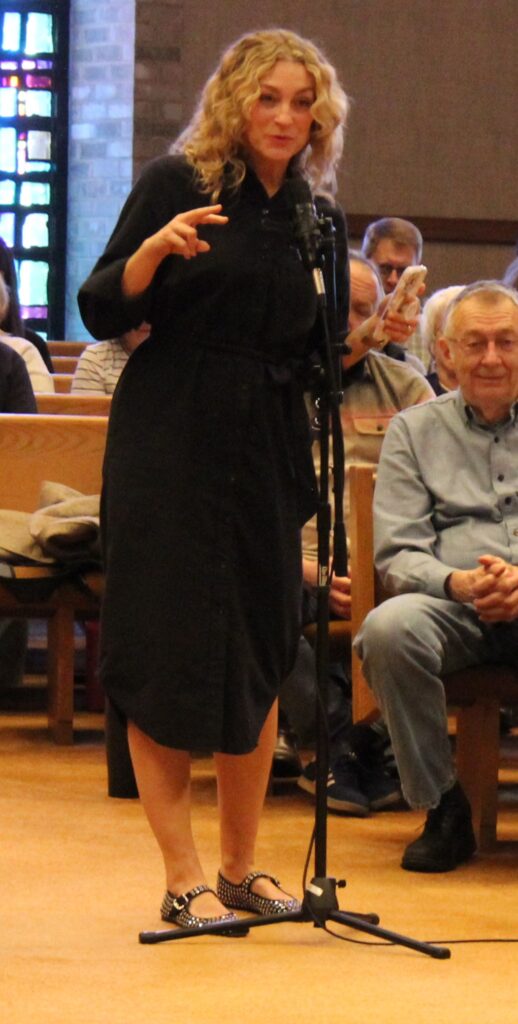
VonStetten addressed how 73% of students, in the Columbia School district, are at an economic disadvantage which has increased in the past threes years. A quartet of the students have IEP (Individualized Education Programs). The district is 51st out of 500 in terms of poverty at the state level and is the second highest in the county. Despite the increase in economically disadvantaged students the funding has not kept up with the need for support. The district is aiming to decrease taxes despite high tax rates and median income of around $50,000 to alleviate the burden on taxpayers.
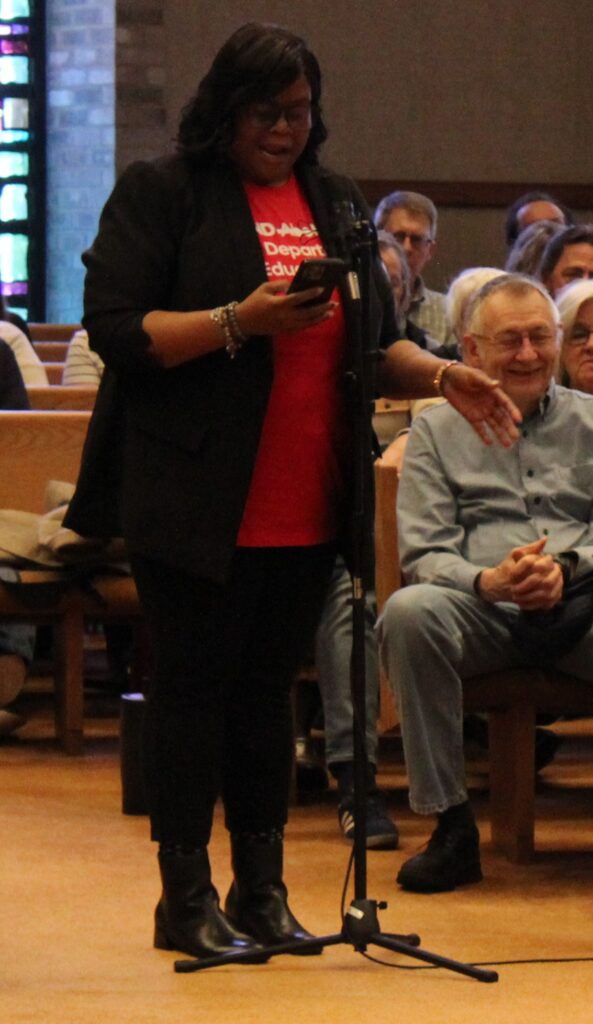
Golden highlighted the crucial need for financing educational opportunities and how effective those resources are to students, especially underrepresented groups. Inadequate funding limits classroom resources and the ability to change educational experiences. Students with disabilities face educational equity issues and proper funding is essential. Adequate funding for special education programs is crucial for confronting the challenges students with disabilities face.
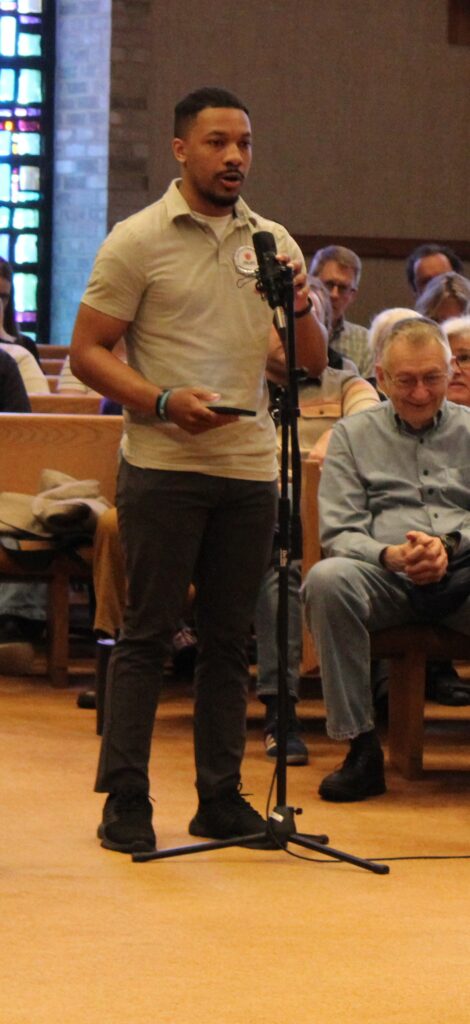
“A fairly funded education for everybody in every zip code in every corner of Pennsylvania.. is what we are gathered here today for, because we refuse to accept the system where the quality of a child’s education is determined by the tax base, then where they happen to be born into, said Williams. Williams stated that the commonwealth Court determined Pa. has been failing its students, especially those in under resourced communities.
He also mentioned the current issue of full day kindergarten, which is unavailable in underfunded school districts and negatively impacts children from lower income households, children of color and English language learners.
Following the testimonies Rivera and Smith Wade-El were given the opportunity to respond to the speakers and answer two question from Power Interfaith staff about tackling the issue of underfunded public schools and their leadership in closing the advocacy gap.
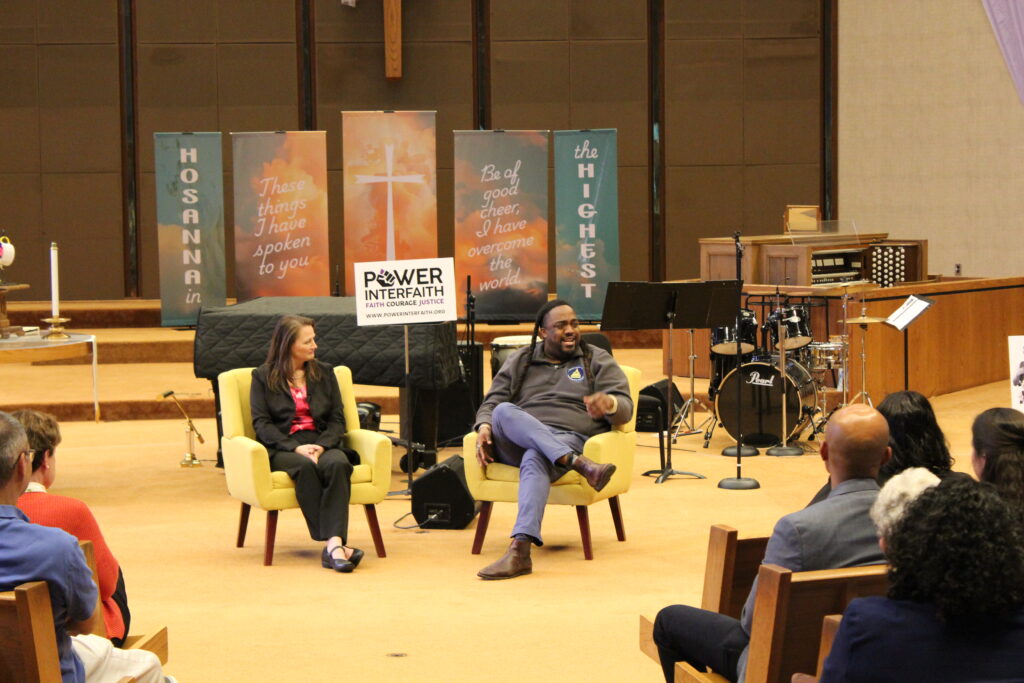
“When Nikki and I go to work in the capital to talk to others about our kids in K-12, or public ed, or our economy. We have the understanding that we are not just talking about our kids in public education. We are literally talking about the foundation of our country, ” said Smith Wade-El.
